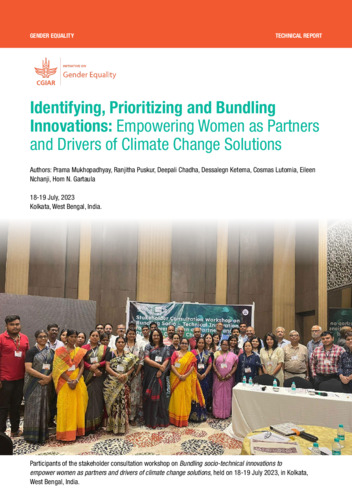Identifying, Prioritizing and Bundling Innovations: Empowering Women as Partners and Drivers of Climate Change Solution
Abstract
Climate change has major implications for food security and the livelihood of smallholder farmers, especially in low- and middle-income countries (LMICs). This is so in spite of the technical and technological innovations in agri-food systems over the past few decades which not only aimed to boost productivity but also be more climate smart. Evidence also suggests that the impact of climate change is not gender neutral (UN Women 2022). Recent studies reveal that many sustainable agricultural technologies remain out of the reach of women, especially those from most marginalized communities, not only due to prevalent gendered social norms but also because women are not considered a ‘target group’ while designing these technologies (Nelson and Huyer 2016; Terefe and Williams 2021). Therefore, women in the global south seem to have a lower uptake of climate-smart agriculture (CSA) technologies.
Barret et al. (2022) argue that all innovations have to be combinatorial bundles of technical, technological and other social and behavioral innovations in order to be transformative. However, while the authors appreciate the need for a careful understanding of the context for bundling social and technical innovations, they do not dwell on gender and social equity aspects. This shows the lack of relevant methods and tools that could help design gender-responsive Socio-Technical Innovative Bundles (STIBs) for more equitable and sustainable impacts.

